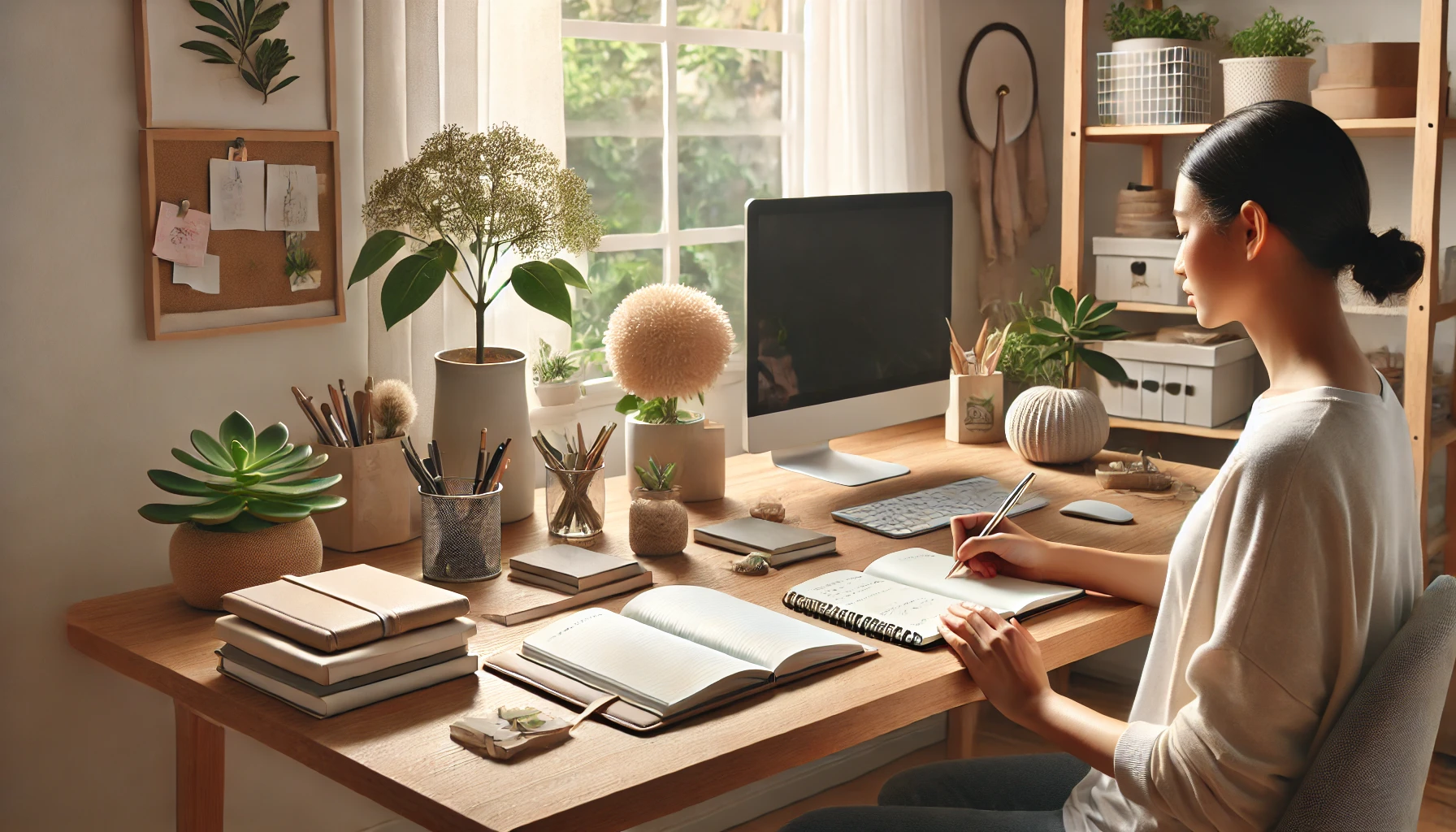A cluttered space can lead to a cluttered mind. When your surroundings are chaotic, your thoughts often feel the same. That’s why personal organization isn’t just a productivity tool — it’s a powerful ally for emotional well-being.
In this article, you’ll learn how getting organized can help you feel calmer, more focused, and emotionally in control — and how to start applying simple systems in your daily life.
The Mental Cost of Disorganization
Disorganization often leads to:
- Mental overload from constant visual stimuli
- Frustration and wasted time looking for things
- Anxiety from unfinished tasks piling up
- Difficulty focusing due to scattered surroundings
On the flip side, organized environments promote:
- Mental clarity
- A sense of control
- Emotional regulation
- Better sleep and productivity
Start with Your Physical Environment
You don’t need to become a minimalist overnight. Just start small — one drawer, one shelf, one room at a time.
Tips:
- Use boxes or baskets to group similar items
- Label what you store to make things easy to find
- Get rid of what no longer serves you
- Keep surfaces clear for mental clarity
A clean space invites a clear mind.
Declutter Your Digital Life Too
Your phone and computer deserve attention too! Try:
- Unsubscribing from newsletters you don’t read
- Deleting apps you rarely use
- Organizing desktop files into folders
- Setting screen time limits for social media
Less digital noise = more peace of mind.
Organize Your Time With Purpose
Time management is really energy management. When you organize your day, you reduce the emotional stress of decision fatigue and time pressure.
Simple time organization strategies:
- Plan your day the night before
- Use a planner or digital calendar
- Block time for focused work, breaks, and fun
- Set realistic expectations — don’t overload your schedule
Prioritizing your time is an act of emotional self-respect.
Create Routines That Bring Stability
Routines help automate good habits and reduce the anxiety of “what now?” Try setting routines for:
- Morning (e.g. hydration, journaling, movement)
- Evening (e.g. planning tomorrow, unplugging, reading)
- Weekly resets (e.g. laundry, meal planning, tidying)
Routines bring rhythm — and rhythm brings balance.
Organize Your Mental Space
Try mental decluttering tools like:
- Journaling your thoughts daily
- Practicing mindfulness to reduce overthinking
- Writing to-do lists to unload your brain
- Using affirmations to redirect self-critical thoughts
Your mind needs clarity just as much as your room does.
Let Go of Perfection
Don’t aim for perfect Pinterest-worthy organization. Aim for functionality and emotional support. If your system helps you breathe easier, think clearer, and feel calmer — it’s working.
It’s not about being “neat.” It’s about feeling at peace.
Final Thoughts: Outer Order, Inner Calm
Getting organized isn’t just a task — it’s a gift you give yourself. When your physical and mental space are in order, you create room for peace, clarity, and presence.
Organization is a form of self-care. Start small. Keep it simple. Let it support your emotional well-being every single day.
